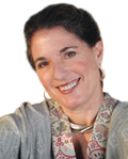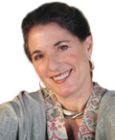
Stress
The Pressure to Re-Invent Yourself in the Third Act
Ending the Cycle of Stress
Posted April 6, 2015
Re-Invent yourself! 70 is the new 50! Grow wiser! How do people entering their third act cope with subtle forms of social pressure to continually become someone else? What if we want the freedom to be in the present, free of a sense of constant struggle?
To explore this question, I invited Gayle Gonzales, a perceptive writer and observer of social mores, to share her reflections:
Writing Our Own Story
"It was the best of times, it was the worst of times, it was the age of wisdom, it was the age of foolishness, it was the epoch of belief, it was the epoch of incredulity, it was the season of Light, it was the season of Darkness, it was the spring of hope, it was the winter of despair, we had everything before us, we had nothing before us, we were all going direct to heaven, we were all going direct the other way - in short, the period was so far like the present period, that some of its noisiest authorities insisted on its being received, for good or for evil, in the superlative degree of comparison only."
- Charles Dickens, A Tale of Two Cities

We are always on the road to becoming. And as we age, we’ve especially come to prize the much-vaunted idea of purposefully reinventing ourselves, hoping for a sense of continual renewal that means we’re busy about the job of life, living it to the fullest, in constant repair.
The ever-present siren call of success tugs at us, which begets the urge for more success. We become enamored with the identification and pursuit of more pathways that we hope will make us more comfortable but somehow only serve to have us cling to the rigidity of the obvious. Our work and our families require us to be fully engaged, firing on all cylinders, neurons ablaze from the moment we awaken to the many evenings of quiet fits of restless sleep.
But what happens when you retire? What happens when you come to a stop and social expectations begin to feel oppressive and stilted? What happens when we no longer feel the need to be constantly stirring, ever arriving, dissatisfied in our own skin? What if we no longer seek to be adrift in a troubled and perpetual odyssey?
I sometimes just find myself simply craving the surprise of what each day brings, a real desire to halt the common American impulse to feel like I am never enough. I keep being drawn to the realization that as we discovered how to breathe at birth, so now, too, is the perfect time to rediscover the true necessity of breathing. And just as in our unsettled youth, maybe it’s time once again to really individuate, to find our own way. Does it have to be a choice between either the “spring of hope” or the “winter of despair” of Dickens? Perhaps it’s our moment of opportunity to get in touch with our deep and connecting humanity, to end our culture’s silent fear of forgetting, to really just let go and feel the true nuances of being alive, one day at a time.
When we at long last uncover our choices, we must do what we can to entertain each of them, especially if they don’t reinforce our past successes. For me, retirement has become about the extraordinarily difficult process of releasing from an old purpose of perfection to forge a future simply filled with more clarity. It’s about striving for a new and unknown simplicity, free of the exacting daily obligation of demonstrating competence. It’s a kind of confession, a knowing that we are meant to breathe unencumbered, to find serenity in the simple, in the silence; to let our cares fade from the prominence they once held in our lives. Perhaps it’s really most of all a time for pure and unbridled enjoyment in a new world of profound forgiveness.

